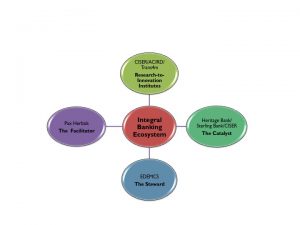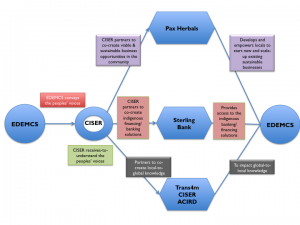Calling: Contributing to Nigeria’s Transition from an Aid-Reliant to a Self-Sustaining Economy
This research-to-innovation-journey, led by Yusuf Adeojo, serves as a response to the aid-reliant nature of rural/neglected communities in Nigeria. With abundant human and natural resources surrounding rural Nigeria, it still relays heavily on the urban/west to sustain itself. The slave-master mentality is still predominant in rural communities in Nigeria and without a radical change in communication within the relevant arms of the community (Government Business and Society), rural communities in Nigeria/Africa will never make that formative move from Aid-Reliant to Self-Sufficient economies, which is an indicator of socio-economic development. Achieving inclusive socio-economic development in rural communities revolves around a broad spectrum of socio-economic necessities. In a socio-economically included rural Nigeria, there must be access to basic amenities, Medicare, employment opportunities for the youth and females, increase in standard of living in rural households, easy access to financial services etc.
It might be very tasking for a research to single handedly achieve the required socio-economic amenities; however, through the collective work/research of CISER a significant contribution to a particular rural context becomes possible. In the CISER team we have:
- Basheer Oshodi: he is the lead researcher for CISER Nigeria and specializes in Islamic finance and developmental economics;
- Father Anselm Adodo: his area of focus is on rural communities’ development and revitalizing indigenous healthcare.
- Folusho Titiloye: his core area of interest is in development of indigenous education curriculum, well grounded in the Nigerian cultural heritage;
- Akeem Oyewale: his research focus is on development and financing of youth entrepreneurship while
- Jubril Adeojo: his research vocation is to develop indigenous integral forms of entrepreneurship and banking rooted in diverse cultural systems.
This research’s calling then is to help rural neglected communities in Nigeria/Africa help themselves and move from an Aid-Reliant to Self-Sustaining economies through the redefined concept of community banking.
Innovation Ecosystem: A local Group of developmentally minded Nigerian Bankers and Community Developers
In Yusuf’s emerging innovative Ecosystem, there are his brother Jubril Adeojo, the CISER Team, and Father Anselm Adodo who like Yusuf, is charged with activating rural communities that need help to help itself. Included is also Barrister Babatunde Olaolohun who is a King maker in Ekiti side of the Yoruba region in

South West Nigeria. Through him, CISER and Heritage Bank will activate more rural/neglected communities in Ekiti and strive to help each community help itself. Through Father Anselm, PaxHerbals and ACIRD have also joined this emerging Ecosystem and will play a major role in addressing trans-disciplinary imbalances within this research-to-innovation-journey and the communities we engage with. Each member of this emerging Ecosystem has separate roles to play as seen in the diagram below.
Heritage Bank through Jubril and Yusuf, Sterling Bank through Dr Basheer Oshodi, Stanbic Bank through Folusho and Akeem and Trans4m through the PhD forms part of the emerging Ecosystem of this socio-economic movement to a better rural Nigeria. In this emerging innovative Ecosystem, Trans4m, CISER, and ACIRD plays the role of the research institute, Paxherbals and other socially conscious organisations are the Facilitators, Heritage Bank, Sterling Bank and Stanbic IBTC play the role of Catalysts while the communities we engage with (e.g. ECDA and other prominent communities in Ekiti ) are acting as Stewards.
Integral Innovation: Towards Integral Community Banking in Nigeria
In the bid to effect innovation in the communities, CISER Nigeria adopted the Trans4m Integral Worlds model. Through Trans4m’s four folding world, CISER Nigeria has realized the importance of diluting a socio-economic research path across the four folding research path (South, East, North and West) as against the domination of the North-Western path. What we have in reality in Nigeria, are research institutes employing more of the North-Western classical theories to alleviate South-Eastern imbalances. Through the 4Cs ontology and the tenets that accompanies each C of the 4Cs parameter, CISER has realize the need to focus its research path on the South-Eastern research realm, occasionally touching base with the relevant North-Western tenets. Here CISER uncovered the power of words and history (Hermeneutics) to purposefully understand the birth of many socio-economic imbalances in Nigeria, like corruption, which draws its origin from the African gift culture.
Collectively CISER has begun to engage neglected/rural communities with the view of helping the community help its self by providing financial leverage for the community to access more financial services from commercial banks. Through the emerging redefined community banking, CISER will empower rural communities in Nigeria to self-provide financial leverage that will enable the communities’ access other financial service. This evolving community banking model is part of the emerging integral banking web as seen below. The integral banking framework is fixated on co-linking established socio-conscious people, enterprise, rural community and communal culture towards co-creating a Self-Sufficient rural socio-economy in light of urban socio-economic development.

Integral Impact: Financially including Igede Community / Revitalizing CISER
Through agent banking scheme in Sterling Bank, financial services was brought closer to Igede Community by working closely with Barr Babatunde Olaolhun, the president of the Igede Community Development Association. At that point Igede was an under banked community with the presence of just one financial institution who dominated rather than enabled the community financially. Furthermore, through Jubril’s and Yusuf’s research-to-innovation CISER Nigeria was re-activated. As a socio-conscious research institute, CISER in collaboration with ACIRD
and PaxHerbals, have activated the Ewu Community with the view to elevate the community from an Aid-Reliance community to a Self-Sufficient community. In the words of the executive of the Ewu Community Development Association, “they cannot believe group of bankers can come together with the view to help nourish the socio-economic potentials of small community like EWU community, because bankers are seen to collect but not give back”.

